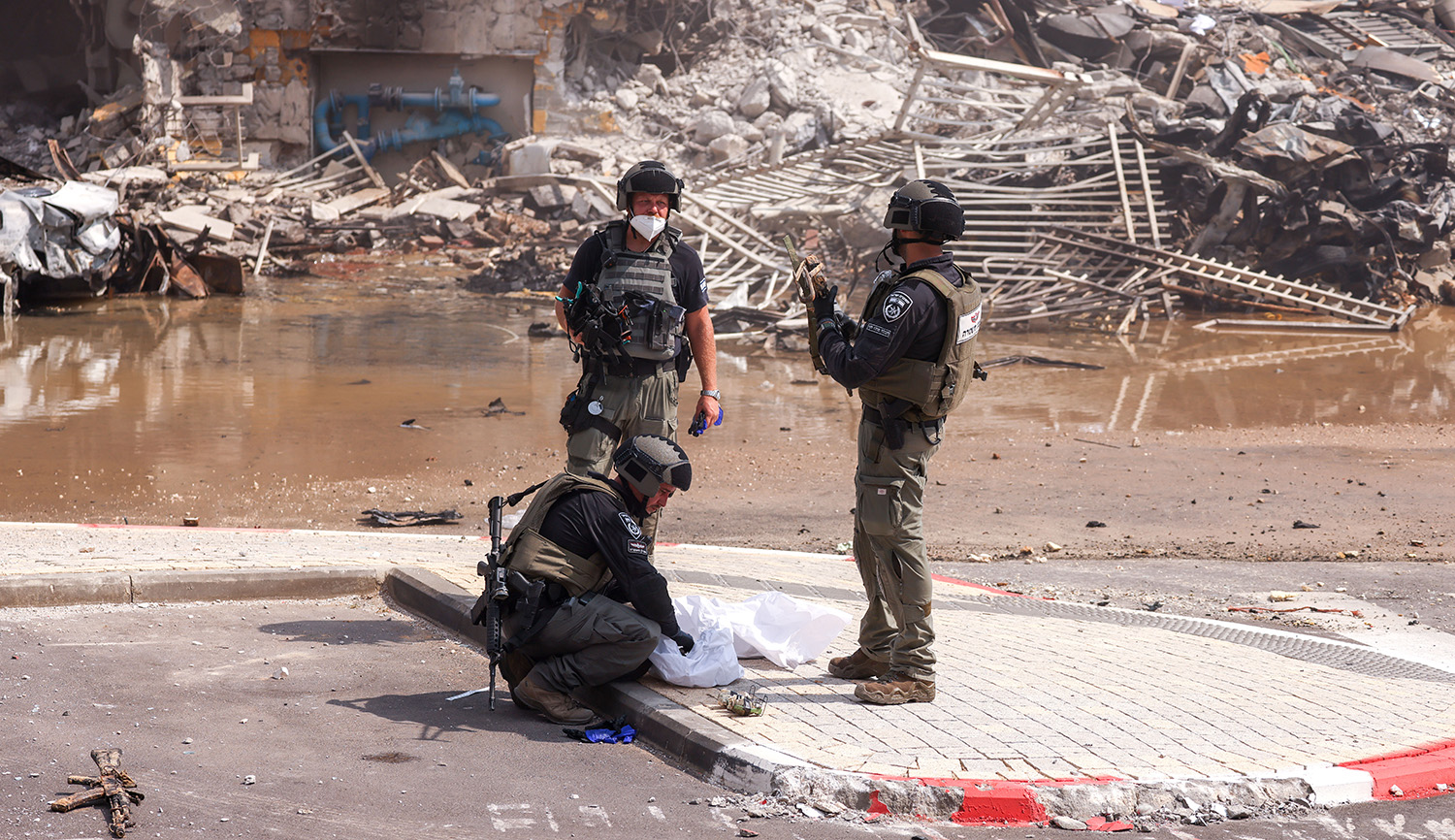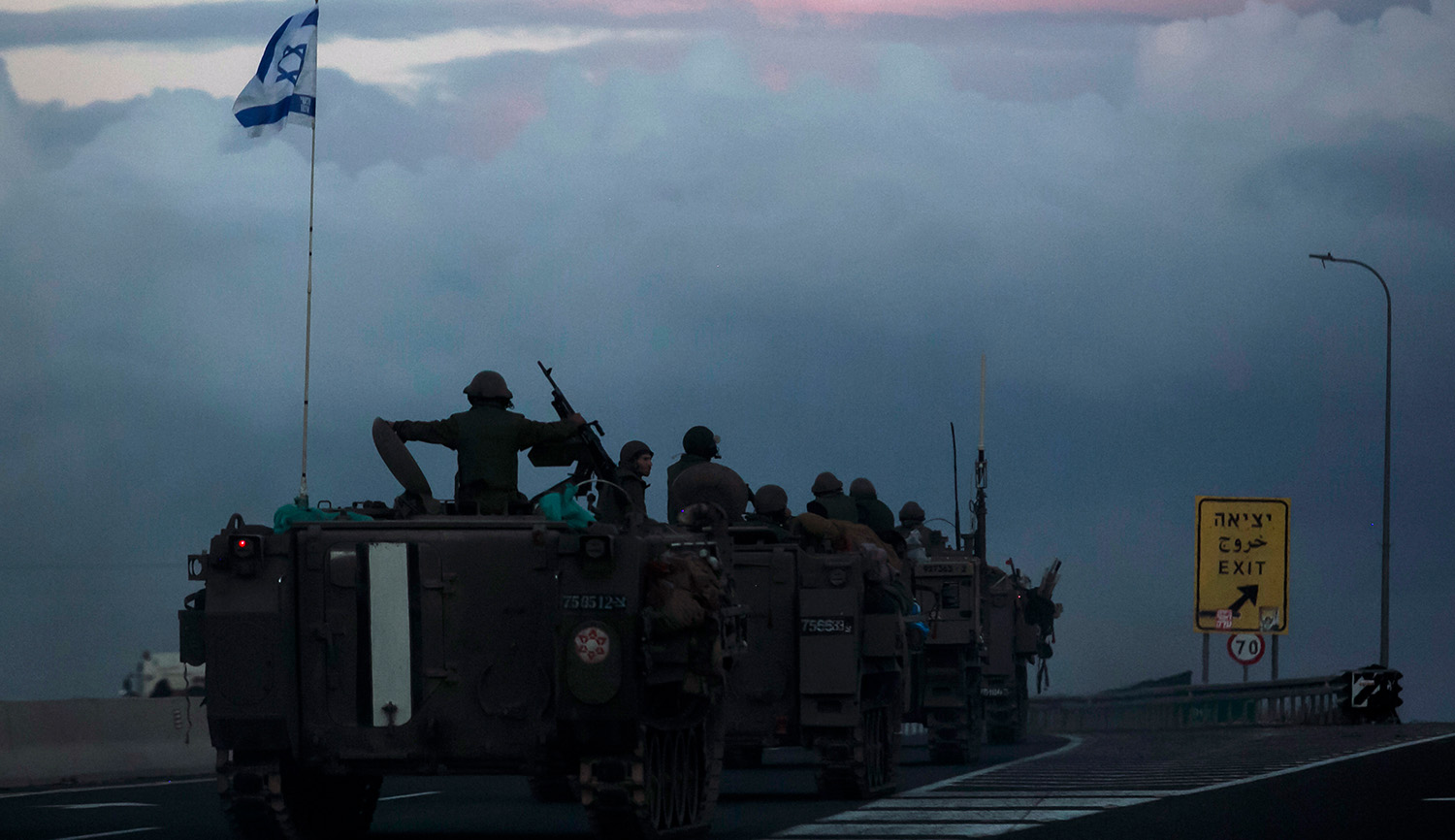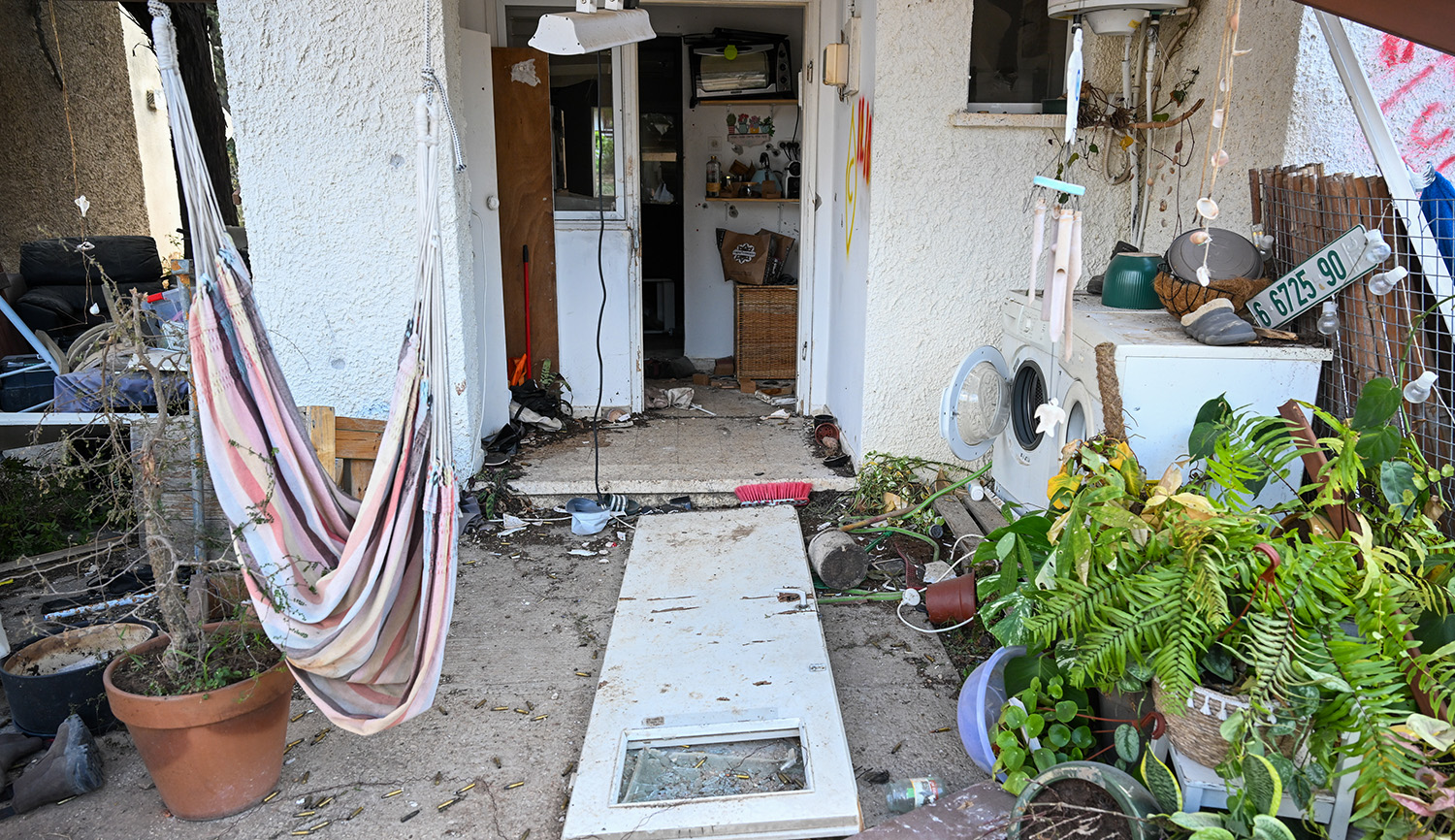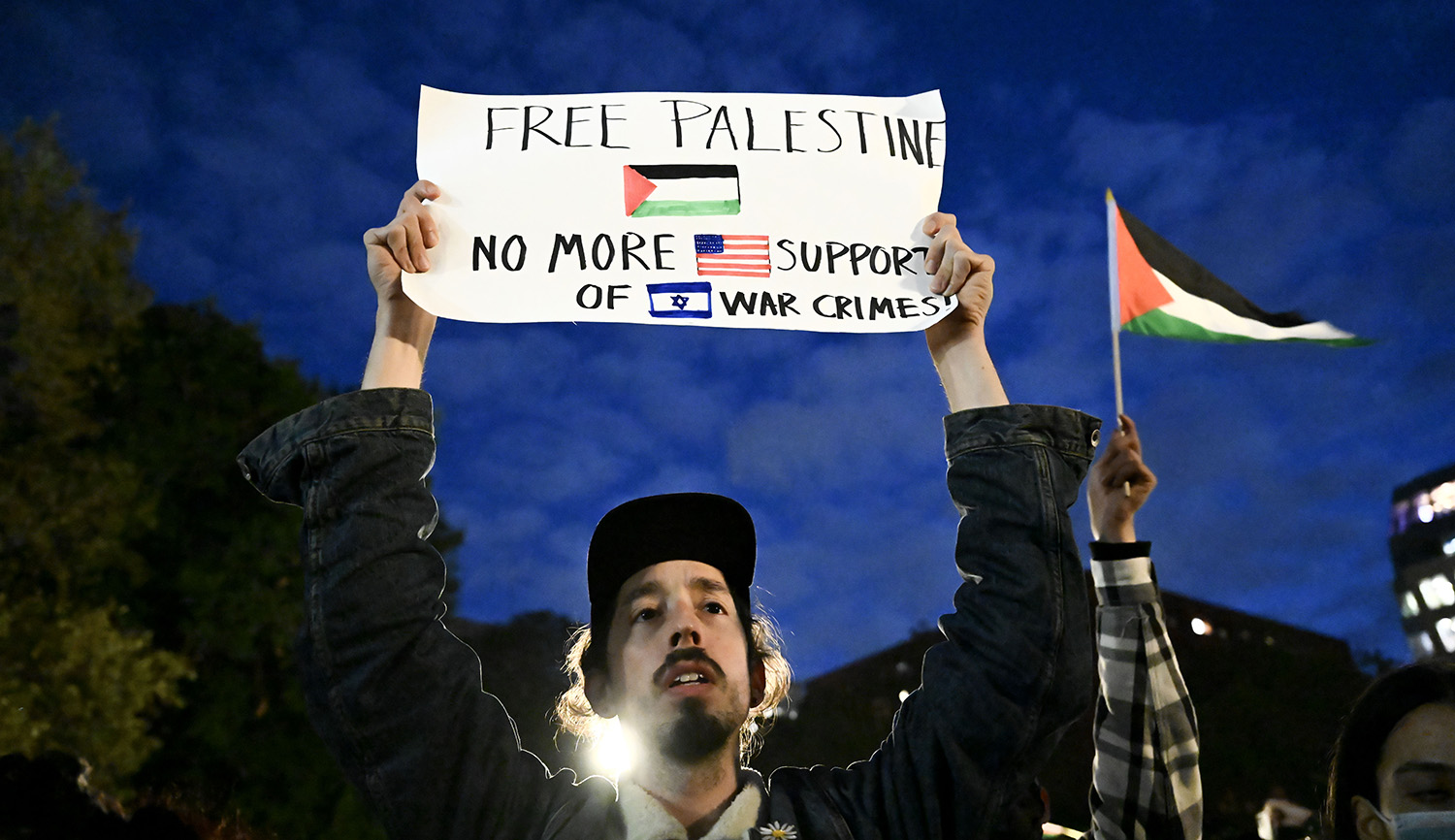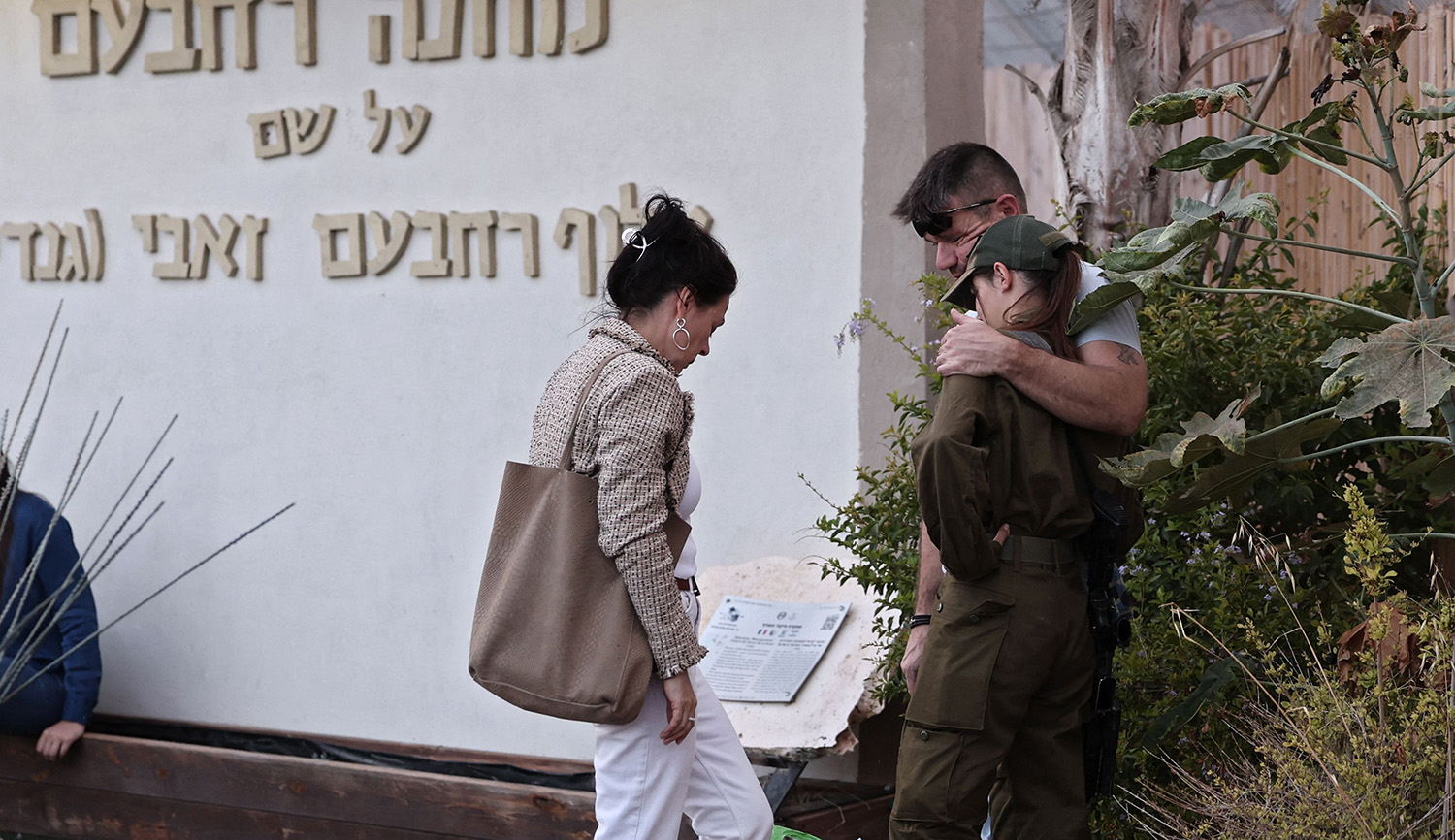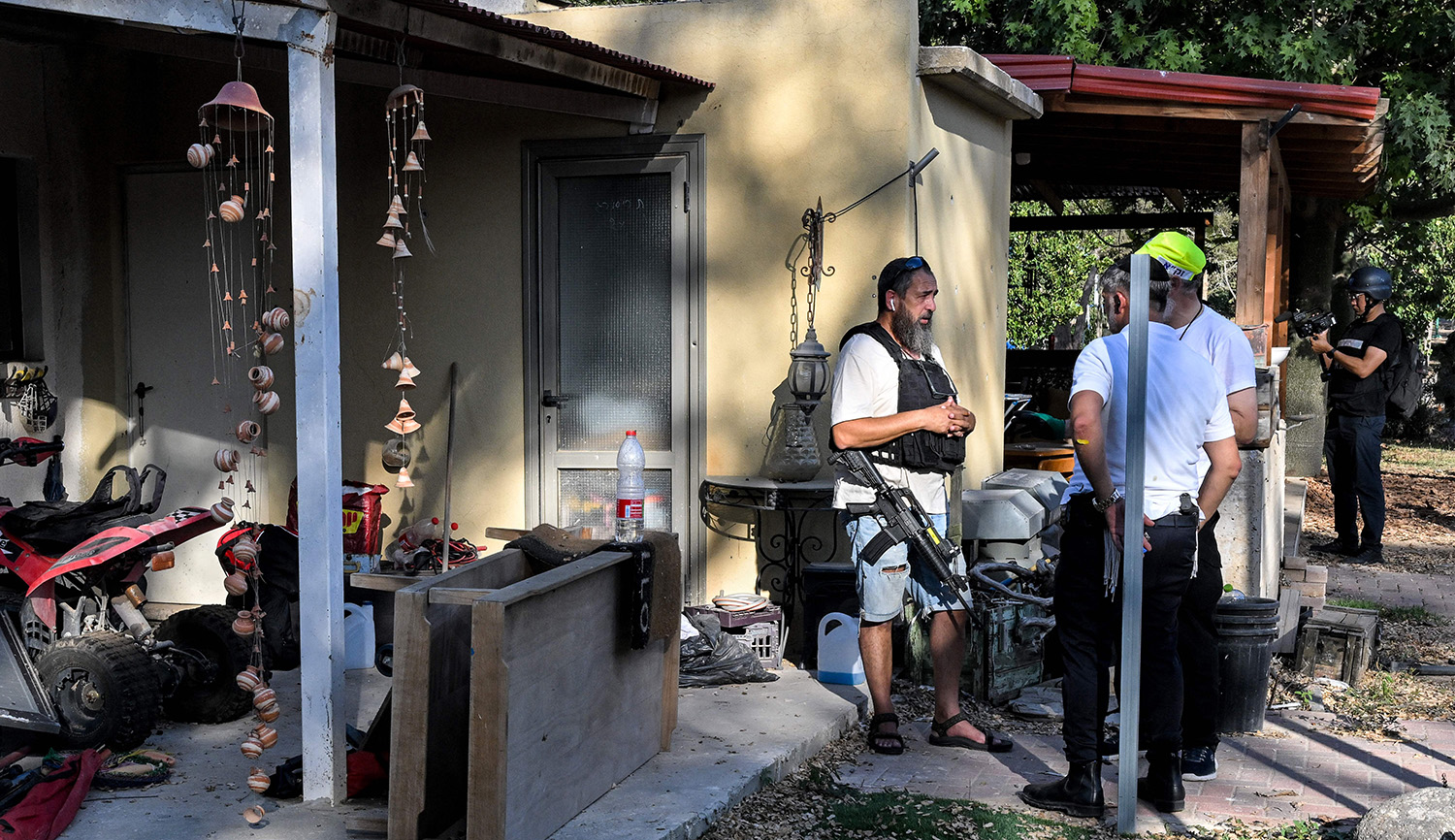Much remains unknown about Saturday’s horrific attack on southern Israel—the worst in Israel’s history, including wars, in terms of the number of civilians killed and kidnapped. But some things are already clear.
First, it was made possible by Israel’s 2005 pullout from the Gaza Strip. Terrorism from the West Bank has never approached this scale; the second intifada (2000–2004) didn’t achieve in four years what Hamas did in two days from Gaza—over 1,200 fatalities (civilians and soldiers). And the key difference is Israel’s military presence.
Israel’s presence in the West Bank makes it much harder for Palestinian terrorists to build up massive arsenals, whether through smuggling or homegrown production; Hamas in Gaza does both. That’s why virtually no missiles are fired at Israel from the West Bank even as Hamas fires thousands from Gaza every few years: the Israel Defense Forces are there to suppress both smuggling and arms production.
Israel’s presence also makes it impossible to train for the kind of large-scale maneuvers Hamas successfully used on October 7; any large-scale exercise would be swiftly broken up and its participants arrested. In Gaza, the IDF can observe such exercises but can neither prevent them nor arrest the participants, because it isn’t there.
Finally, Israel’s presence in the West Bank enables much better intelligence than it has in Gaza, where preparations for Saturday’s massive attack eluded the intelligence agencies completely. That’s because aerial photography, spyware, and other technological tools can only do so much. But to run human agents, intelligence operatives generally need to meet with them in person and develop a relationship, at least initially. That’s easy in the West Bank, where Israel is present. It’s virtually impossible in Gaza, where Israel is absent.
Indeed, the indispensability of a military presence in the West Bank became clear to most Israelis during the second intifada, which was made possible by Israel’s withdrawal from significant swaths of the West Bank under the 1993 Oslo Accords: then, too, the IDF’s absence allowed Palestinian terrorists to arm and train without hindrance. Although the army’s presence in other parts of the West Bank was a mitigating factor, it was only after Israel reinvaded Palestinian-controlled areas in April 2002 that Israeli casualties begin dropping, by about 50 percent a year, after having risen steadily for eighteen months.
Yet Gaza, which borders Israel’s sparsely populated south rather than its densely populated center as the West Bank does, seemed a safe place to test a competing hypothesis—that if Israeli soldiers and settlers left, Palestinians would have no reason to attack Israel and would focus on state-building. And when that hypothesis proved false—rocket fire on southern Israel quickly escalated once the IDF left, and the first war with Hamas in Gaza erupted just three years after the pullout—a new theory arose: yes, Hamas is a nuisance, but a small terrorist organization can’t really do Israel much harm from across a well-guarded border, so the pullout is still preferable to bearing the costs, in terms of both military casualties and money, of an Israeli presence in Gaza.
That theory has been eroding for years, as each successive Hamas-Israel war (we are now on the fifth in eighteen years, by my count) produced ever-more-intensive rocket fire on ever-growing swaths of Israel. But it collapsed completely on Saturday. It turns out a small terrorist organization across the border can wreak massive harm.
Nor is it plausible to argue that while quitting Gaza didn’t satisfy the Palestinians, quitting the West Bank would—because Hamas’s primary goal is neither statehood nor prosperity, but Israel’s destruction. As the senior Hamas official Moussa Abu Marzouk said in 2021, the organization wants Israel “to come to an end just like it began.” Granted, the West Bank is controlled by Mahmoud Abbas’s Fatah party, not Hamas (though Fatah also isn’t enthusiastic about fighting terror; the IDF does most of the work). But so was Gaza when Israel left. A year later, Hamas won the Palestinian election. And a year after that, fed up with Fatah’s refusal to cede power, it ousted Fatah from Gaza militarily in a week.
That Hamas truly seeks Israel’s destruction is hard for Westerners to grasp; many feel it must have sought some diplomatic or economic gain from Saturday’s attack. But Hamas itself made no such claims. It certainly wasn’t seeking to improve Gaza’s economy; a Hamas source told Reuters that its negotiations in recent months about Qatari aid and letting more Gazans work in Israel were a deliberate deception aimed at convincing Israel it wasn’t interested in war. Nor was it seeking to pressure the Saudis over normalization with Israel. As a Hamas operative told Israel’s Channel 13 television, preparations for this attack began a year ago—long before normalization was anything but a fantasy. And those preparations were massive, even including construction of a mock village so the terrorists could practice invading civilian homes.
Moreover, despite Gaza’s ongoing humanitarian nightmare under Hamas rule, polls consistently show that its leader, Ismail Haniyeh, would trounce Abbas if Palestinian elections were held today. And its enduring popularity is precisely the result of its single-minded focus on Israel’s destruction, a goal that most Palestinians—including Fatah members and supporters—unabashedly share.
In a 2015 Fikra Forum poll, for instance, 81 percent of West Bankers and 88 percent of Gazans said that Israel, the West Bank, and Gaza are all “Palestinian land” to which “Jews have no rights,” and only a quarter of respondents expected Israel to “continue to exist as a Jewish state” in 30 to 40 years. A plurality even said that reclaiming all of Israel, the West Bank, and Gaza should be the “main Palestinian national goal” over the next five years. Nor should the two-state solution’s second-place showing on the list of short-term national goals provide much comfort, since an Israel Project poll from 2011 found that 66 percent of Palestinians view two states as a mere stepping-stone to a single Palestinian state in all of Israel, the West Bank, and Gaza.
In the context of these widespread Palestinian beliefs, Hamas’s attack makes perfect sense. Because Jews, in its view, have no religious or historical connection to this land, Hamas sees them as mere colonial occupiers who can be driven out through a sustained campaign of deadly terror, just as colonial occupiers were in many other countries. Thus it’s no surprise that, as Haaretz’s Sheren Falah Saab reported, most of the Gazans she spoke with described the attack “as the beginning of the ‘liberation of Palestine.’”
But since Israel won’t acquiesce in its own annihilation, it can only put itself in the best possible situation to protect itself. And that, for all the reasons given above, requires military control of Palestinian areas.
One related conclusion also follows from Saturday’s attack—the future of Israel’s relations with the Arab world depends on its response. Israel’s position in the region has improved substantially in recent years. Aside from several new peace agreements, Arab support for Israel on social media since Saturday has also been unprecedented, as Falah Saab reported. But the Abraham Accords, the possibility of normalization with Saudi Arabia, even the peace with Jordan and Egypt all rest on one fundamental belief: Israel is a regional power, both militarily and economically, and it isn’t going anywhere, so relations with it make more sense than vain dreams of its destruction.
But Israel certainly hasn’t looked like a military power this week. And it won’t look like one if it can’t destroy Hamas in response to this attack. If Hamas can deal Israel a blow of this magnitude and emerge only slightly damaged—i.e., still in control of Gaza and able to swiftly rebuild its arsenal—despite Israel’s vast military advantage in terms of both manpower and materiel, the Arab world will conclude that Hizballah’s leader Hassan Nasrallah was right all along: Israel is just a spiderweb, too frail to contribute anything to its regional partners, and in the long run, too frail even to survive.
Arab countries would then have no choice but to align with the only other regional power, Iran, which is committed to Israel’s destruction and already has no shortage of likeminded allies, including Hamas and Hizballah. Israel would be left looking—and feeling—diplomatically isolated and militarily vulnerable. Under those conditions, it likely wouldn’t even remain an economic powerhouse for long.
Consequently, much now rides on Israel inflicting a devastating blow on Hamas. But that can’t be achieved by airstrikes alone; it requires ground operations. Moreover, Israel will have to remain permanently in at least part of Gaza. This is vital to prevent Hamas from regaining control, to provide a buffer zone for the battered south, which would otherwise become a ghost region, and to exact a price for the attack in the one currency Hamas and its ilk seem to value—land.
Whether Israel is capable of doing this, either militarily or politically, is still uncertain. The IDF hasn’t instilled much confidence in its capabilities this week; it couldn’t even keep Hamas from overrunning its divisional headquarters, much less protect civilians. The government, top-heavy with incompetent ministers, is disliked and distrusted by most Israelis. And despite Israelis’ horror over the attack, their willingness to risk their own or their children’s lives in an extensive Gaza operation remains unclear.
Yet most Israelis understand that what’s at stake isn’t just the south’s future, but Israel’s. Moreover, the country has a history of coming together to do what is necessary; it wouldn’t have survived until now otherwise. Today, what is necessary is to turn Saturday’s attack into a fatal mistake for Hamas.
More about: Gaza, Gaza War 2023, Hamas, Israel & Zionism, new-registrations, West Bank





